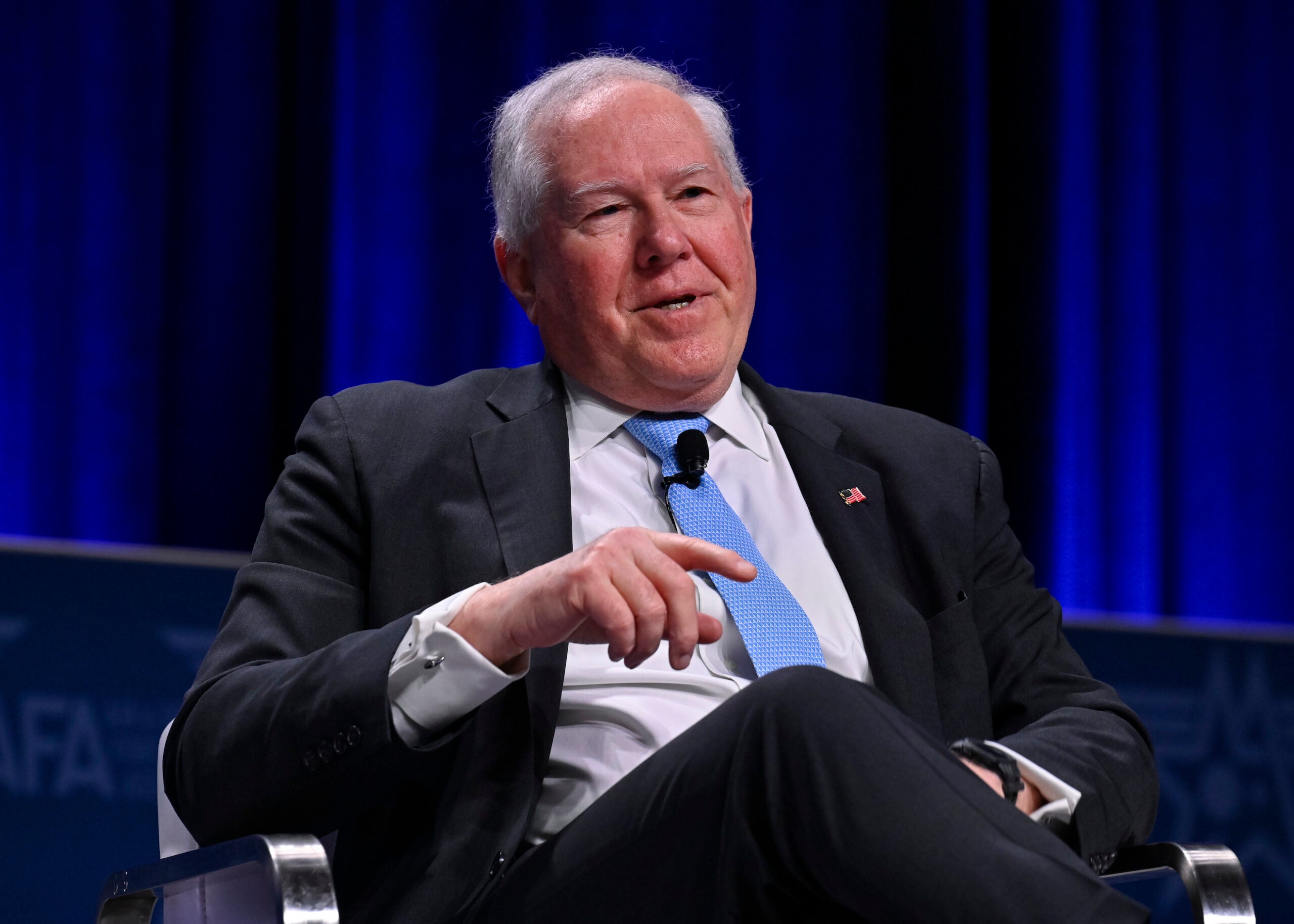Latest News
Kendall: Fiscal Responsibility Act Constraints Will Slow US Space Force Programs

Secretary of the Air Force Frank Kendall at the 2024 Warfare Symposium in Aurora, Colorado on February 14, 2024. Photo: U.S. Air Force by Eric Dietrich
The fiscal limits in last year’s Fiscal Responsibility Act will slow U.S. Space Force modernization in fiscal 2025, Air Force Secretary Frank Kendall said in a March 8 briefing with reporters.
“We made a [fiscal 2025] tradeoff in the Air Force between procurement and research and development in order to move forward as fast as we can on modernization, that next generation capability,” he told reporters on March 8 in a briefing on the Department of the Air Force’s fiscal 2025 budget. “The Space Force didn’t have that kind of flexibility. The Space Force is about 63% research and development so the net effect of the constraints we have is we’re not moving as fast as we’d like to in space, but we’re still moving forward.”
DAF said that the Space Force budget fiscal 2025 request is $30 billion, a $600 million decrease from last year’s request.
Two factors explain the $600 million fall in the Space Force request for fiscal 2025, Kendall said.
“Launches have slipped because payloads have not been ready so we will have a smaller number of launches than we had planned last year, and there’s some work in the pass through part of our budget,” he said. Such DAF budgeted pass through funding for intelligence agencies, such as the National Reconnaissance Office, is $45.1 billion in fiscal 2025, and the DAF budget, excluding such pass through funding, is $217.5 billion — a $2.4 billion, 1% increase over last year’s ask.
A more than year long delay in the RTX delivery of the payload for the first geostationary Lockheed Martin Next Generation Persistent Overhead Infrared (Next Gen OPIR) missile warning satellite may push that satellite launch on the USSF-57 mission beyond the planned date of next year, Assistant Secretary of the Air Force for Space Acquisition and Integration Frank Calvelli told the National Security Space Association last month.
Other launches that Space Force has been planning for fiscal 2025 or earlier include USSF-95 for the first Medium-Earth Orbit missile tracking prototype satellite and USSF-25 with the Defense Advanced Research Project Agency (DARPA) to demonstrate the agency’s Demonstration Rocket for Agile Cislunar Operations (DRACO) nuclear thermal spacecraft.
Stay connected and get ahead with the leading source of industry intel!
Subscribe Now